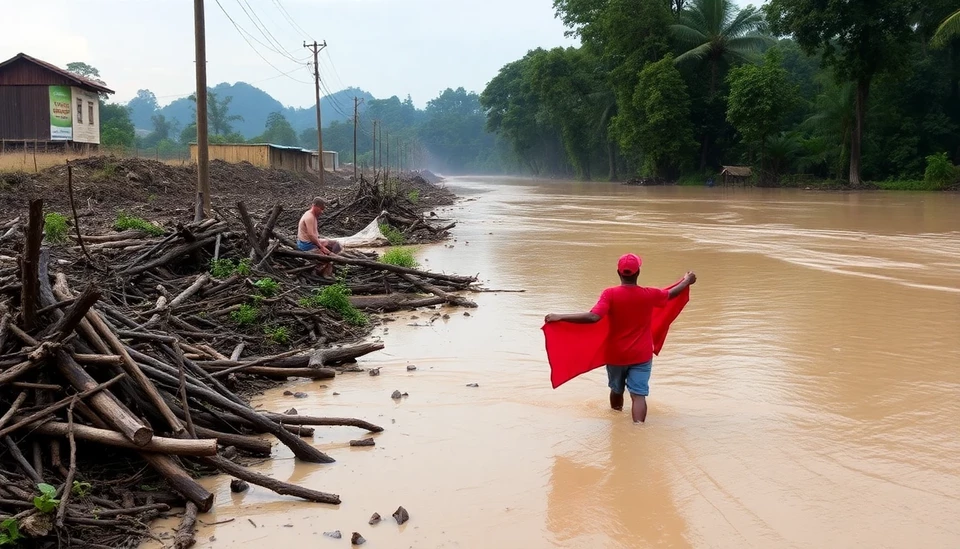
As Brazil grapples with devastating environmental challenges, recent catastrophic fires and floods have thrust climate change into the forefront of public consciousness. Citizens across the nation are increasingly aware of how these climate-related disasters are reshaping their lives and communities, prompting urgent discussions around policies and actions to address this emerging crisis.
This alarming trend is particularly notable as regions previously considered less vulnerable are now experiencing extreme weather events. The Amazon rainforest, a crucial carbon sink and biodiversity hotspot, has faced unprecedented forest fires, while southern states have been battered by torrential rains leading to severe flooding. These occurrences are not isolated but part of a broader pattern attributed to climate change, raising fears among residents about the future stability of their environment and livelihoods.
Brazilians are feeling the immediate impact of these environmental disasters. Farmers report devastating losses due to dry spells and flooding that wash away crops, while urban dwellers contend with damaged infrastructure as floods inundate streets and homes. The intertwining of economic stability and climate resilience is becoming evident, with many questioning how their government plans to mitigate these escalating risks.
This year, Brazil has witnessed some of its worst environmental disasters in decades. In response to this alarming situation, public discourse is shifting dramatically. Citizens are increasingly demanding accountability from their leaders regarding environmental policies. Activist groups are rallying for immediate action to combat climate change, pushing for sustainable practices and better preparation for future disasters.
Furthermore, the Brazilian government faces the dual challenge of rebuilding affected areas while implementing long-term strategies to improve disaster resilience. This involves not just infrastructural investments but also fostering a deeper understanding of environmental protection among citizens. Education and outreach are seen as key components in ensuring that future generations are equipped to handle the repercussions of climate change.
International responses are also in play, with countries and organizations lending support for sustainable practices and recovery efforts. Brazil’s position as one of the world’s largest carbon emitters adds to the urgency for a coordinated global response. The international community is closely monitoring Brazil's environmental policies, as the actions taken now could have far-reaching impacts on global climate initiatives.
In the wake of these natural disasters, it is clear that the dialogue surrounding climate change in Brazil is shifting from theoretical concerns to practical action. Residents are increasingly aware of their role in advocating for change, and a new generation of environmental advocates is emerging to lead this crucial fight. As Brazil stands at a crossroads, the decisions made in the coming months will be pivotal in shaping the nation’s response to climate change and its commitment to a sustainable future.
This shift in awareness and action indicates a significant cultural change among Brazilians, who are historically known for their rich environmental diversity and reliance on natural resources. Now, more than ever, proactive engagement and commitment to sustainable practices may dictate the resilience of not only the Brazilian landscape but also its economy and social framework.
The pressing question remains: will Brazil rise to meet the challenges of climate change? As citizens demand change and leaders respond to immediate needs, the nation’s journey toward a sustainable future is just beginning.
#Brazil #ClimateChange #Sustainability #EnvironmentalDisasters #AmazonRainforest #Floods #Fires #PublicAwareness #GreenFuture
Author: Sophie Bennett




